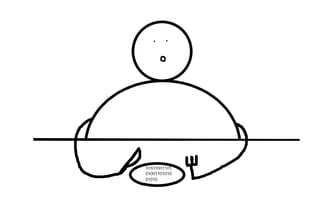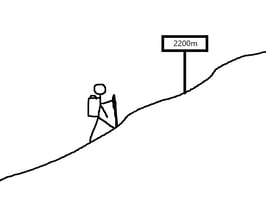As technology has evolved, information has become abundant and easily accessible. However, with...
How to Master Effective Action.
 Is procrastination an emotion, condition or behaviour?
Is procrastination an emotion, condition or behaviour?
In any case I’ve found that you can eradicate and minimise its impact to create a bias to getting effective work done with the right thinking. Here’s how…
Why do you Procrastinate?
The simplest form of this answer is that you are lazy.
But it’s not the whole picture. Because while this plays a part, procrastination impacts all types of people, even the most motivated.
So why does a seemingly capable person put forth such a lame effort toward their actions again and again?
Is it because the problem is too hard to solve?
Or is it that the task is impossible?
Usually, the answer to these questions is no.
From my experience it is much simpler than this.
The real question you should ask yourself though is: what is your inaction costing you?
What happens if you do nothing?
And in reality what problem ever got better by doing nothing?
In my experience, none.
Remember also that: doing nothing IS doing something.
Choosing not to make a change is a choice in itself.
So now you have come to this realisation, how can you begin to take action effectively?
Stop confusing complex with difficult
I find that a simple reason I don’t attempt to complete tasks is because they haven’t been broken down into manageable steps.
Now this doesn’t apply to everything. Obviously washing the dishes or doing your laundry doesn’t fall into this category.
But this does apply to the tasks you have told yourself you need to complete for days, weeks, months or maybe even years.
Realistically people tend to confuse complex with difficult. When in reality, they are two completely separate issues.
Difficult in this context is when a task is emotionally arduous, tough, or demanding. Maybe it’s firing that straggling employee. Or not making an appointment to find out if that pain in your back is a major problem.
Complex on the other hand is when a problem has no correct answer. Maybe there is not one method to achieve it. Or that it involves a multi-pronged attack to complete. For example, how to scale your business or how to improve your skills at a certain principle. Progression has no specific strategy.
The reality is that the specificity of what you need to complete is vital in your ability to attempt it. Find out more about how to be specific in my article here.
The 80/20 Rule
So finally you have started to get specific with how you attack your goals and master actioning your ideas.
This is a good step but often people make the common mistake of working for work's sake.
Encouraged by this new hustle culture in the modern world.
The issue is that being busy doesn’t necessarily mean you are working effectively.
This is where the 80/20 rule is a useful principle to leverage.
Essentially the idea is that 80% of all outcomes are derived from 20% of actions.
IE 20% of effective work can account for 80% of the results.
For example, 80% of a company's revenue comes from 20% of their highest paying customers.
Or
80% of software glitches are caused by 20% of bugs.
Or
80% of crimes are committed by 20% of criminals.
It’s a compelling idea right?
So how can you implement this into your own tasks?
Professionally, personally or otherwise, being able to rework your understanding of the problem to focus on the most important 20% can transform your ability to implement effective actions quickly.
So what else can you do to implement effective action?
Make the hard things easy, and the easy things hard
Another principle I have lived by that makes having a bias to action easier to adhere to is simply to make the easy things hard and the hard things easy.
So what does this actually entail?
Well imagine your goal is to lose 5kg in 3 months.
Keeping less unhealthy or carb heavy foods in the house would significantly improve your ability to eat the right things surely?
Therefore you have made it harder to indulge unhealthy foods. The effort it takes to order them to your house or go to the shop and get the food you are craving is simply long enough for you to take the easiest path and therefore eat the healthy snacks you have stocked your cupboards with downstairs.
This is an example of making the easy things hard.
Similarly, maybe you want to join a gym to increase your anaerobic activity and burn more energy to create a bigger calorie deficit and help you in achieving your goal.
Joining a gym you can walk to in 5 minutes is a lot easier than the one that is a 20 minute drive away.
This is a prime example of making the hard things easier.
Giving in to your inner desires is why you procrastinate or why you don’t achieve the tasks you set for yourself.
And a lot of times I feel that the path of least resistance is taken when confronting difficult tasks (not complex ones). Which gives you the ability to stick to your long term goals because breaking them may be more effort than following them.
If you can mitigate your weak thoughts by making it easier to stick to your goals longer term, you will exponentially improve your results.
The Bottom Line
In reality there is no magic formula to keep yourself accountable 100% of the time.
But you can implement strategies to make it easier to do what you tell yourself you will.
There will always be moments of weakness but if you can:
1) Remember that your inaction is costing you.
2) Doing nothing is doing something.
3) You should work on the important problems and stick to the 80/20 principle.
4) Make the hard things easy and the easy things hard.
This will radically improve your ability to implement effective action and in due course, rapid change.
This and more at www.drewmwyatt.com
.png?width=200&height=200&name=DREW%20WYATT%20(5).png)


